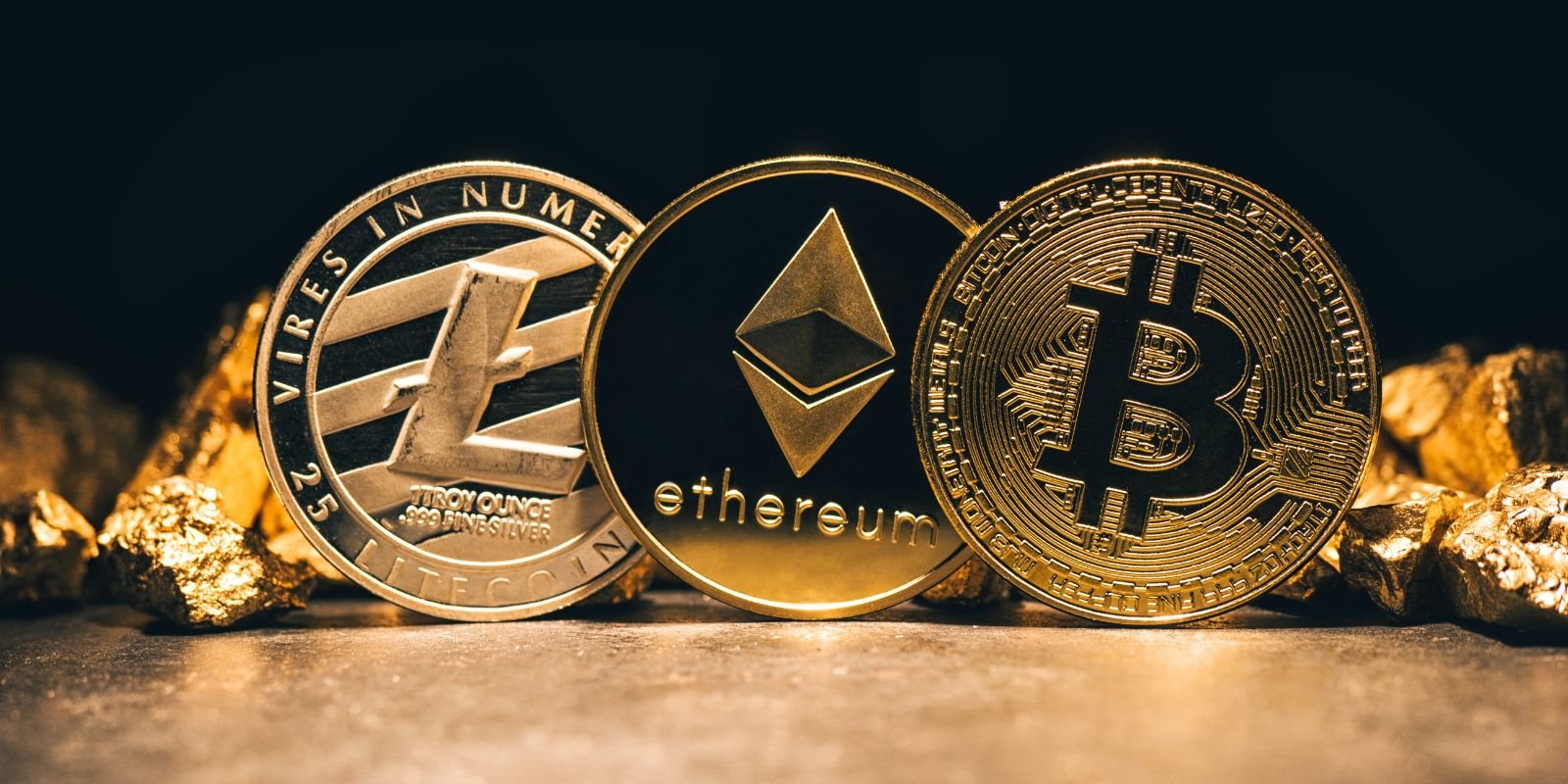Have you ever wanted to join the conversation at the water cooler about Bitcoin vs Ethereum vs Litecoin? Sure, you keep up with the news and maybe you even own a little bit of cryptocurrency yourself. But when it comes to breaking down the differences between these three digital currencies, are you a bit stumped?
At first glance these coins may seem quite similar—but as we dive deeper into each one’s features, we will uncover some compelling distinctions between them! So stick around for a guided tour of the crypto-universe. Who knows – maybe by the end of this journey you will know exactly which coin deserves your investment!
What Is Bitcoin?
You’re probably familiar with Bitcoin, the world’s first cryptocurrency. It was created in 2009 by a mysterious person or group of people known as Satoshi Nakamoto and is considered the gold standard of digital currencies.
Bitcoin is digital money that can be used to purchase goods and services from anywhere in the world. It’s fast, secure, and anonymous, meaning no one can track what you are buying or selling—only that you are making a transaction. Transactions are recorded on an immutable digital ledger known as the blockchain, which keeps track of every single Bitcoin transaction that ever takes place.
Unlike traditional fiat currencies like the US dollar and euro, Bitcoin is decentralized—it has no central authority (like a bank), so it is not controlled by any government or financial institution when you buy or sell Bitcoin in Dubai or anywhere in the world. Its value is determined by users trading it on exchanges around the world rather than by a central authority like a bank or government. This makes it immune to censorship and uncontrollable inflation — two huge advantages over traditional currencies — but also makes it vulnerable to extreme volatility.
What Is Ethereum?
The second biggest cryptocurrency is Ethereum or ‘ETH’. It’s a revolutionary type of blockchain where computer code can be used to create decentralized applications and smart contracts. This makes it possible to do online transactions and other activities that are usually done through a bank or some other type of financial institution.
Ethereum also offers tools for developers, like Solidity and Remix, to create decentralized applications and smart contracts. This technology has already been used in the financial sector, supply chain management, governments, and more.
In addition to its impressive functionality, Ethereum also has some major advantages:
- Low transaction costs: as compared to Bitcoin and Litecoin, Ethereum has much lower transaction fees so it’s cheaper to use;
- High scalability: the platform can handle a large number of transactions very quickly;
- Increased security: the nature of blockchain technology means there is less risk of fraud since all transactions are recorded in an immutable ledger.
As you can see, Ethereum is a powerful platform for developers and businesses alike – so it’s no surprise that it’s become one of the most popular cryptocurrencies around!
What Is Litecoin?
You’ve seen it trending on the news and you’ve heard your friends talk about it—you’re ready to learn more about Litecoin. But what is Litecoin exactly?
Litecoin is a cryptocurrency, just like Bitcoin and Ethereum, that works as a peer-to-peer system of payment, where users exchange money directly with each other without the need for a third-party intermediary. It was created in 2011 to provide an alternative to Bitcoin with faster transaction speeds and lower fees.
Unlike Bitcoin, Litecoin runs off of Scrypt technology which utilizes less computing power. This made it easier for miners to join in on the crypto mining process and allowed transactions to be more secure and private. Litecoin also offers faster transaction times with block times taking approximately 2.5 minutes vs Bitcoin’s 10 minutes. This makes using Litecoin more convenient for making everyday purchases or trading between two parties.
Bitcoin vs Ethereum vs Litecoin
Comparing Litecoin vs Bitcoin: Speed, Fees, and More
When it comes to comparing Litecoin vs Bitcoin, the first factor to take into consideration is the consensus mechanism. This is basically the technology that’s used behind each crypto in order to reach a secure, global, and uniform agreement about Bitcoin transactions.
So what are the differences between Litecoin and Bitcoin when it comes to this? Let’s dive in.
Litecoin’s Script Consensus Mechanism
Litecoin uses the so-called “Script” consensus mechanism, which basically makes use of a lot of algorithms and cryptographic functions in order to make sure that all transactions are secure and valid. This consensus has also enabled Litecoin to reduce transaction fees by a whopping 70%.
Bitcoin’s Proof of Work (PoW) Consensus Mechanism
Bitcoin, on the other hand, uses a “Proof of Work” (PoW) consensus mechanism which relies on miners verifying transactions by solving complex algorithms with their computing power. This process has made Bitcoin quite slow and expensive when compared to Litecoin.
Ethereum vs Bitcoin: Smart Contracts, Dapps, and More
When it comes to Ethereum vs Bitcoin, the latter is still considered the “gold standard” in cryptocurrency. But Ethereum has some advantages that Bitcoin doesn’t, including the ability to create and execute smart contracts, run decentralized applications (dapps), and even create and issue new digital tokens or coins.
Smart contracts are executable digital agreements that are stored and enforced on the Ethereum blockchain. They allow for transactions to be defined and enforced automatically, potentially reducing costs associated with lengthy verification processes or continuous third-party monitoring.
Decentralized applications, or dapps for short, are applications built on the Ethereum blockchain but not controlled by any one party—instead all participants within a given network share control of the application. There is no single point of failure since no one entity can own or control the application. This makes dapps much more secure than traditional software applications running on centralized servers.
Finally, Ethereum has also enabled developers to issue their own digital coins or tokens as part of a larger dapp (or project) they’re developing. This allows users to incentivize others to complete tasks related to their project as rewards in these tokens. This means developers can easily create their own crypto-based projects without having to issue new coins from scratch.
Transaction Speed: Bitcoin vs Ethereum vs Litecoin
When it comes to transaction speed, each cryptocurrency has its own advantages and disadvantages. Bitcoin transactions take the longest amount of time—the average transaction time for Bitcoin is 10 minutes. On the other hand, Litecoin is significantly faster than Bitcoin, with an average transaction time of 2.5 minutes. And Ethereum takes even less time to process transactions, with an average of 12-15 seconds per transaction.
The main reason for the difference in speed between these cryptocurrencies is the different ways in which they are designed and how they process transactions. Bitcoin and Litecoin are designed as “proof of work” systems, meaning that each transaction must be verified and confirmed by miners before it can be included in the blockchain ledger — this slows down the transaction process considerably. Ethereum, on the other hand, uses a “proof of stake” system which is much more efficient and faster at processing transactions because it doesn’t require miner verification.
In conclusion:
- Bitcoin has an average transaction speed of 10 minutes
- Litecoin has an average processing speed of 54 TPS making it up to 4 times faster than Bitcoin
- Ethereum has an average transaction speed of 12-15 seconds and can handle up to 100,000 TPS post the merge.
Should You Invest in Litecoin, Bitcoin, or Ethereum?
Now that we’ve compared the pros and cons of Litecoin, Bitcoin, and Ethereum, you may be wondering which one you should invest in.
The answer will depend on your particular goals, risk tolerance, and investing style. But there are some general things you should keep in mind when deciding which cryptocurrency is right for you.
Transaction Time and Fees
Bitcoin is the slowest and most expensive to use, while Litecoin is the fastest but also more volatile. Ethereum falls somewhere in between. So if speed and cost factor into your decision-making process, then Litecoin or Ethereum may be a better option for you than Bitcoin.
Use Cases
It’s also important to look at the type of applications each cryptocurrency can support. Bitcoin is mainly used as a digital currency, while Ethereum also supports smart contracts and decentralized applications (Dapps). Litecoin is mostly used as a payment method but can also be used for storing value like Bitcoin. So depending on your needs, one may be more suitable than another.
If investing for the long-term or hedging against inflation appeals to you, then Bitcoin may be a good choice due to its stability and well-established reputation as a store of value. But if you’re looking for something with faster transaction times or lower transaction fees then perhaps Ethereum or Litecoin make more sense for your portfolio.
Ultimately, it’s important to do your own research to find out before you buy cryptocurrency in Dubai or anywhere else on the globe which cryptocurrency best meets your needs before committing any money to an investment in any of the “big three” digital currencies.
Bitcoin’s Domination over Ethereum and Litecoin
You may have heard that Bitcoin is king when it comes to cryptocurrencies, but what does this really mean? In a nutshell, Bitcoin has a massive lead in terms of market capitalization and is the most widely accepted cryptocurrency—which puts it a notch above Ethereum and Litecoin in terms of value.
How did Bitcoin earn its top spot?
Market capitalization
At the time of writing, Bitcoin has a $532.92B cryptocurrency market cap. Ethereum and Litecoin market cap is $220.47B and $5.84B, respectively. That’s a huge difference!
First to market
Bitcoin was the first cryptocurrency ever created, so it’s only natural that it would have a head start when it comes to dominating the crypto market. Over the years, many competitors have emerged, such as Ethereum and Litecoin, but Bitcoin remains number one due to its long history and track record of success.
Popularity & wide acceptance
Bitcoin’s popularity has also contributed to its current dominance over other cryptocurrencies. It’s estimated that around 36 million Bitcoin wallets exist worldwide, with more being created every day—which means more people are using Bitcoin for payments than ever before. Plus, many companies accept Bitcoin as payment—a testament to its usefulness as an actual currency.
Conclusion
Comparing the Top 3 Cryptocurrencies, Bitcoin vs Ethereum vs Litecoin leaves us with a few things to consider. Each cryptocurrency has its own unique attributes and with the ever-evolving nature of the cryptocurrency space, these differences will be more and more pronounced.
When deciding which cryptocurrency to invest in, there are many factors to consider. Litecoin is a great option for those who want to get involved with cryptocurrency trading quickly and with minimal fees, Bitcoin offers a more secure platform, and Ethereum is ideal for those looking to enter into the world of smart contracts and automated payments.
Ultimately, it’s important to do your own research and decide which cryptocurrency is best for your specific needs and goals. Cryptocurrency is a rapidly developing technology, and it’s important to stay up to date with the latest developments in order to make the most informed decisions.







